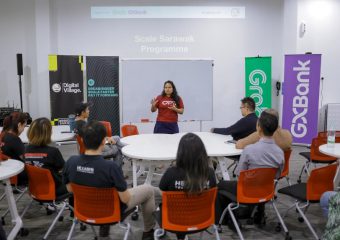If you find yourself unsuited for a 9-to-5 job, you might want to opt for one with flexible working hours. Flexible working arrangements (FWA) are work schedules that are different from the typical work pattern, and they come in many forms.
In the Malaysian context, based on TalentCorp Malaysia’s FWA initiative – flexWorkLife.my – they are, among others, compressed work week, flexi hours, job sharing, project-based work, and telecommuting.
Many organisations in developed countries have been practising FWA for decades as a practical means to meet the demands of the ever-changing working landscape.
This is made possible through technological advancements, enabling employees, particularly working parents and millennials, to work outside the office while meeting their personal needs.
However, according to TalentCorp Malaysia, only 10 per cent of Malaysian companies are practising FWA, suggesting that not all Malaysian employers are prepared to embrace the notion of giving their employees freedom through work flexibility.
Still, when well-implemented, employers stand to reap the benefits of the FWA model, such as improved productivity, better opportunities in hiring and retaining top talents, and enhanced overall company performance due to better employee engagement.
In turn, by working during non-traditional work hours, employees will have access to a more conducive work environment, perform better in their jobs and achieve a greater work-life balance, among other advantages.
With Sarawak developing its digital economy, young Sarawakians may not necessarily need to work in urban cities or spend a lot on commuting as they will be able to work with companies from Sarawak or beyond without leaving their home, especially when ICT infrastructure is up and running.
There are, however, a few things that you need to take note before committing to flexible working hours, aside from requiring functioning mobile devices, computers and Internet access.
At present, FWA is mostly suited for jobs that don’t require much presence in the office, particularly those in IT, advertising and marketing, and creative industries.
Where teamwork is involved, communicating with your colleagues through phone calls or video-conferencing may not be as spontaneous and direct as face-to-face interaction, which can be more effective in fostering professional relationships and team spirit.
And in cases where you’re working remotely, the lack of supervision means you’ll need the discipline to abide by the rules set out by your employer, for example, be punctual to your working hours or complete your task or assignment in a timely manner.
Nevertheless, if achieving a balance between professional and personal commitments is your priority, then FWA provides such opportunity, so long as you don’t abuse the privilege you’re given and demonstrate your capability to deliver constantly, even when you’re not in the office.
This is a weekly column by SarawakYES! – an initiative driven by Faradale Media-M Sdn Bhd and supported by Angkatan Zaman Mansang (AZAM) Sarawak – to provide advice and stories on the topics of education and careers to support Sarawakians seeking to achieve their dreams. Join us on Facebook, Twitter, Instagram and YouTube.
This article first appeared on The Borneo Post, visit this link: http://bit.ly/2w3o7p4




